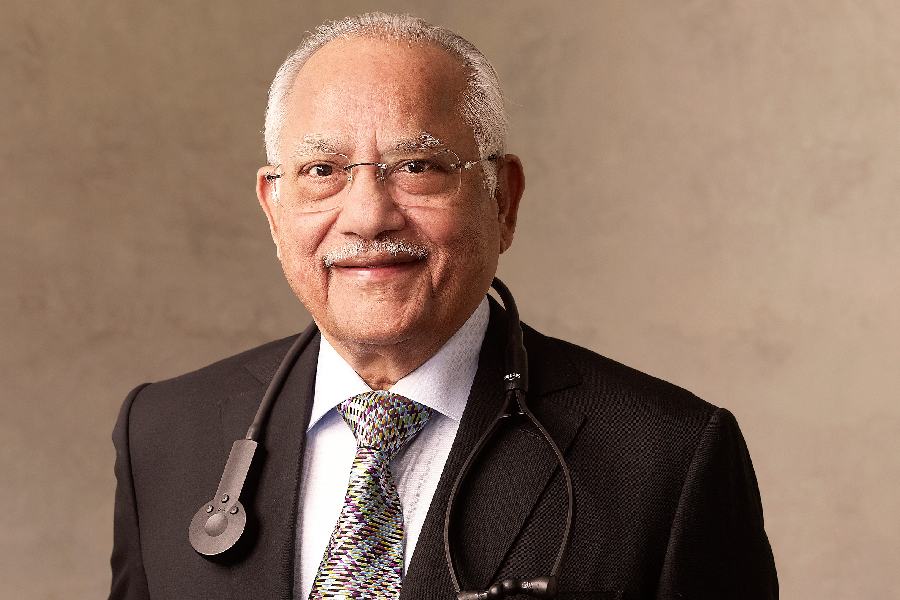India’s rapid economic growth has brought sweeping lifestyle changes. From working hours to recreation, and food habits have not been spared.
According to Dr Prathap C. Reddy, founder and chairman of Apollo Hospitals Group, the country’s shift from traditional, home-cooked meals to processed and packaged foods is emerging as one of the biggest challenges to public health.
Citing the Household Consumption Expenditure Survey 2023–24, Dr Reddy said nearly 10–11 per cent of total food expenditure in both rural and urban India now goes to beverages, processed, and packaged foods.
“These categories are overtaking traditional staples such as milk, fruits, vegetables, and grains,” he said. “Many see this as a marker of modernity, but it is, in truth, a double-edged sword, a sign of progress on one side, and a growing threat to public health, particularly heart health, on the other.”
He warned that the change in dietary trends raises an urgent question about how Indians can protect their heart health through food choices.
Dr Reddy emphasised that while medical care, medication, and regular exercise are vital, nutrition remains the foundation of heart health.
Quoting his colleague, Dr Prakash Chandra Mondal, head of department and senior cardiologist at Apollo Hospital, Kolkata, he said India’s traditional diets, regional, seasonal, and largely plant-based, are among the best natural protections against heart disease.
“These traditional diets are largely plant-based, seasonal, and rich in fiber and beneficial plant compounds. Fats like ghee, mustard oil, or coconut oil are used in moderation,” Dr Mondal said.
He added, “In Kolkata, ilish (hilsa fish), which is rich in omega-3 fatty acids, brings perfect balance to a primarily plant-based plate. When prepared in moderation and in a heart-healthy manner, such meals can even benefit cardiac patients.”
According to Dr. Reddy, these traditional eating patterns, centred on lentils, whole grains, and vegetables, naturally help maintain body weight, cholesterol, and blood pressure.
However, urban lifestyles and convenience-driven choices are steadily replacing these healthier habits.
Over the last decade, urbanisation, higher incomes, and global exposure have changed eating behaviour across India.
“Fried foods, refined flour-based snacks, sugary drinks, and ultra-processed packaged foods have become daily staples,” Dr Reddy said. “Eating out or ordering in, once an occasional indulgence, is now routine. People often eat hurriedly, alone, and in front of screens.”
He warned that such patterns have measurable consequences.
“Excess salt raises blood pressure and hardens arteries, increasing the risk of stroke and heart failure. High sugar leads to obesity and insulin resistance, which accelerate arterial disease. Trans fats and reused frying oils raise bad cholesterol, lower good cholesterol, and cause inflammation in blood vessels, pushing coronary artery disease forward,” he explained.
Ultra-processed foods, he added, are also replacing fruits, vegetables, and whole grains, leading to deficiencies in fiber, vitamins, and micronutrients. Over time, these habits weaken the cardiovascular system.
A UNICEF report has projected that by 2030, more than 27 million Indian children and adolescents aged 5–19 could be obese, accounting for 11 per cent of the global total.
“Obesity is a major risk factor for heart disease,” Dr Reddy said. “This trend raises concerns about the health of future generations and the country’s cardiac profile.”
To address the growing burden of heart disease, Dr Reddy called for structured and mindful eating habits supported by policy and community efforts.
Quoting Dr Sushan Mukhopadhyay, senior cardiothoracic and vascular surgeon at Apollo Hospital, Kolkata, he said, “We must return to real, minimally processed food; eat slowly, mindfully, and in moderation. Such conscious habits help the body absorb the full benefits of nutritious food.”
Dr Reddy said individual effort alone is not enough, as eating patterns are shaped by culture, environment, and policy. “Returning to home-cooked meals requires time, effort, and shared family responsibility,” he said.
He added that regulatory steps such as limits on salt and sugar in processed foods, clear labeling, and easier access to fresh produce can encourage healthier choices.
School and workplace meal programmes, he said, can reinforce positive eating habits and build an ecosystem where heart-friendly food becomes a social norm rather than an exception.
“India stands at a crucial point. If we rebuild our meals with nutrient-rich, balanced foods, blending traditional Indian wisdom with modern nutrition, we can restore strength to the heart of our nation and protect the health of generations to come,” Dr Reddy added.











